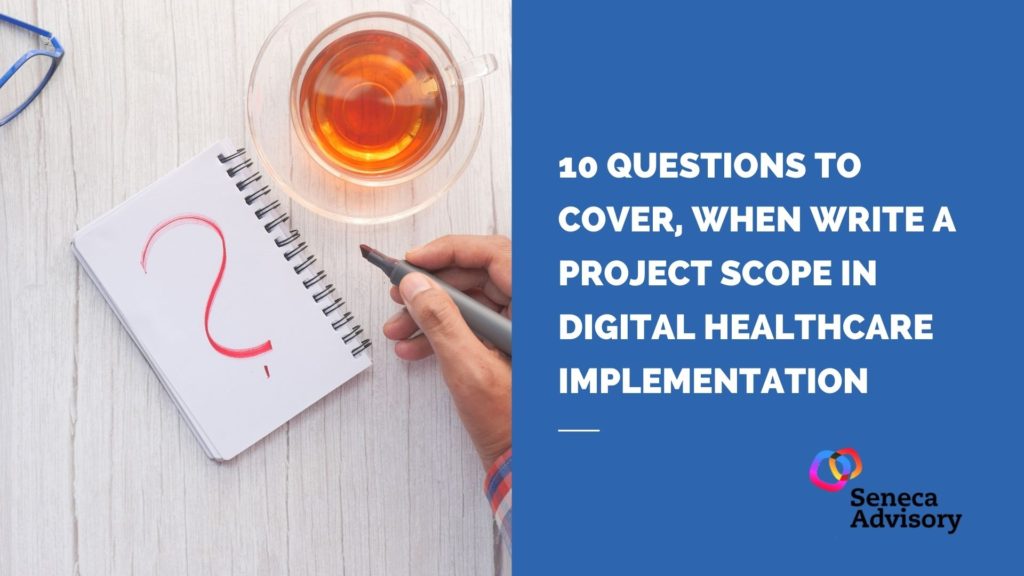10 questions to cover, when write a project scope in Digital Healthcare implementation
by Biliana Barker – Director Seneca Advisory
The most important step of a digital implementation project is the writing of the project scoping document as one should not be starting a project without it. The purpose of scoping document is to clearly explain the project to all stakeholders, the “Why” we are doing it, “What” we are going to do and “How” we are going to do it.
It should be able to be read as a stand-alone document, where the person reading it has no prior knowledge of the project and has not been involved. It acts as the blueprint for the delivery of the project, setting out the most important elements of the project, what the project will achieve, the initial roadmap and who it will involve. The scoping document should be written by the project manager leading the implementation, supported by their team and approved by the sponsor.
The project scoping document should be sufficient to answer questions over the project for the team, senior stakeholders and yourself as lead.
To help write this, start by meeting with the Project sponsor, Lead Clinicians and the project team, discuss what areas of the project to have written clarity over, then agree these and we have outlined below the areas that should be included, enabling this overview.
However this approached, you need to start with vision, the “Why” of the Implementation project. This must be set out clearly and concisely as you and the team will be following this throughout the project. A number of projects do not spend enough time on this, which leads to projects having limited focus and increases the risks that the project will fail, or be less than optimal.
What your scoping document should cover:
- Vision and the “Why” we are doing this.
- Expected outcomes that will be achieved by doing this.
- Anticipated benefits that will be delivered.
- The team roles that need to be involved across the implementation, subject matter experts, where multiple orgainsations are involved, which orgainsation they come from.
- Who are your stakeholders and their involvement.
- Initial roadmap of the implementation, start dates and important milestones, external and internal commitments that have been made.
- The Governance requirements, reporting, approval, communications, risks
- Methodology and running the project in agile, allowing for uncertainty, wanting and gathering feedback, establishing trust and creating the micro culture of the Agile ways of working methodology.
- Evaluation, how and what are you going to evaluate.
- Outline budget that has been agreed and how this can be spent.
The Project scoping document will help you with the fundamentals and direction of travel. This will be your manual to navigate not only the processes, but to structure your Change management tactics and create positive expectations for the working solution ahead of its’ implementation.
We have prepared a master template, with a completed example to show what a completed scoping document should look like. This will help you address many challenges in any Healthcare implementation as early as possible.
Download for free Digital Health Project Scope template
Seneca Advisory is leading Healthcare Digital Transformation partner for the NHS and the Independent providers.
Address
40 Gracechurch Street
London EC3V 0BT


